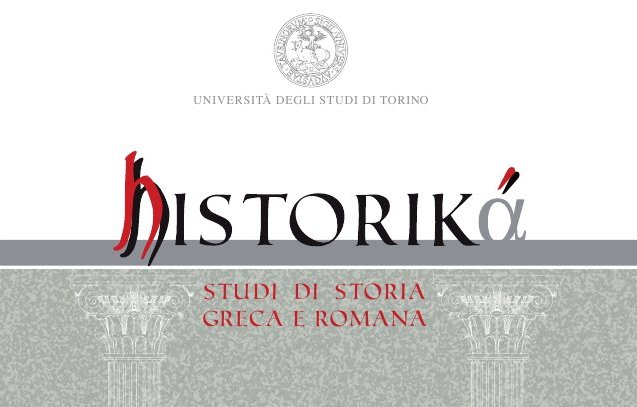Immaginario del mare e homonoia. Luoghi reali e virtuali dell’armonia e dell’amicizia nella retorica politica e nella prassi (IV sec. a.C.)
DOI:
https://doi.org/10.13135/2039-4985/1907Resumen
Concord is order, harmony, balance, it is a moral principle that inspires pacific coexistence within the civic community; this is the image delivered by IV century philosophical and political thought. Such a notion was developed within a speculation over spaces and places considered in their faculty of producing or hindering the establishment of a condition of ὁμονοεῖν. In the IV century cultural horizon the sea figured both as the space of inequality, violence and power struggle, as opposed to the earth that produced concord and relations of friendship, and also as a vehicle of ideas that associated freedom and concord, a bulwark for democracy. Athens’s action on the sea was just as much a model for both the positive and negative notion. Gorgias and Lysias can be considered the first authors to provide evidence of these contrasting representations.
Under another perspective, the sea was the space of mercantile activities and the Aegean harbours functioned as privileged places of an operational concord born from the meeting and association of diverse people, united by their work experiences and economic interests by which social integration prevailed over political distinctions. The diffusion of the cult of Homonoia at Piraeus, epigraphically attested since the IV century B.C., and its fortune among the communities of thiasotai testifies its correlation with mercantile society and its establishment among the multiethnic population of the Athenian port. The devotion of citizens and foreigners, free and slaves, men and women, answered the need for a cult to be shared by people of most diverse provenance, heterogeneous social extraction and of different religious traditions, offering thus a model of homonoia that went beyond the bounds of the civic community to be declined according to the criteria of cosmopolitism and integration.
Descargas
Publicado
Número
Sección
Licencia
Gli autori che pubblicano su questa rivista accettano le seguenti condizioni:
- Gli autori mantengono i diritti sulla loro opera e cedono alla rivista il diritto di prima pubblicazione dell'opera, contemporaneamente licenziata sotto una Licenza Creative Commons - Attribuzione che permette ad altri di condividere l'opera indicando la paternità intellettuale e la prima pubblicazione su questa rivista.
- Gli autori possono aderire ad altri accordi di licenza non esclusiva per la distribuzione della versione dell'opera pubblicata (es. depositarla in un archivio istituzionale o pubblicarla in una monografia), a patto di indicare che la prima pubblicazione è avvenuta su questa rivista.


 The journal has been approved for inclusion in DOAJ. The DOAJ listing of the journal is available at
The journal has been approved for inclusion in DOAJ. The DOAJ listing of the journal is available at 

